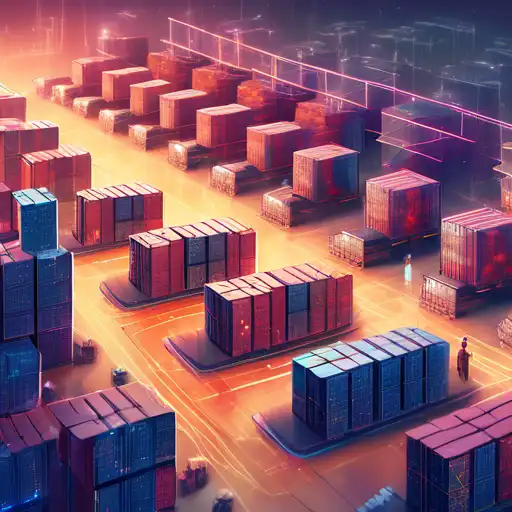The Transformative Power of Blockchain in Modern Supply Chains
In the digital age, blockchain technology is emerging as a revolutionary force in transforming supply chains across industries. By offering unparalleled transparency, security, and efficiency, blockchain is setting new standards for how goods are tracked and transactions are recorded. This article delves into the myriad ways blockchain is reshaping supply chains, ensuring a more transparent, efficient, and secure future.
Understanding Blockchain in Supply Chains
At its core, blockchain is a distributed ledger technology that allows data to be stored globally on thousands of servers. This ensures that no single entity can control the data, making it highly secure and tamper-proof. In supply chains, this technology is used to create a permanent, unchangeable record of every transaction, from the origin of raw materials to the final sale to consumers.
Key Benefits of Blockchain for Supply Chains
- Enhanced Transparency: Every transaction is recorded on a blockchain, providing all parties with access to the same information. This reduces discrepancies and builds trust among stakeholders.
- Improved Security: The decentralized nature of blockchain makes it nearly impossible to hack, ensuring the integrity of the supply chain data.
- Increased Efficiency: By automating transactions and eliminating intermediaries, blockchain speeds up processes and reduces costs.
- Better Traceability: Blockchain enables the tracking of products from manufacture to delivery, helping to quickly identify and resolve issues.
Real-World Applications
Several industries are already leveraging blockchain to enhance their supply chains. For example, in the food industry, blockchain is used to trace the origin of products, ensuring food safety and quality. In the pharmaceutical sector, it helps in combating counterfeit drugs by verifying the authenticity of medications. The logistics and shipping industry benefits from blockchain through streamlined operations and reduced paperwork.
Challenges and Considerations
Despite its potential, the adoption of blockchain in supply chains faces challenges. These include the need for standardization across industries, the high cost of implementation, and the requirement for all parties to adopt the technology. However, as blockchain technology matures, these hurdles are expected to diminish.
The Future of Blockchain in Supply Chains
The future looks promising for blockchain in supply chains. With ongoing advancements and increasing adoption, blockchain is poised to become the backbone of supply chain management. Companies that embrace this technology early will gain a competitive edge, benefiting from improved efficiency, security, and customer trust.
As we move forward, the integration of blockchain with other emerging technologies like IoT and AI will further enhance its capabilities, opening new avenues for innovation in supply chain management. The journey of blockchain from a niche technology to a mainstream solution is just beginning, and its impact on supply chains is only set to grow.
